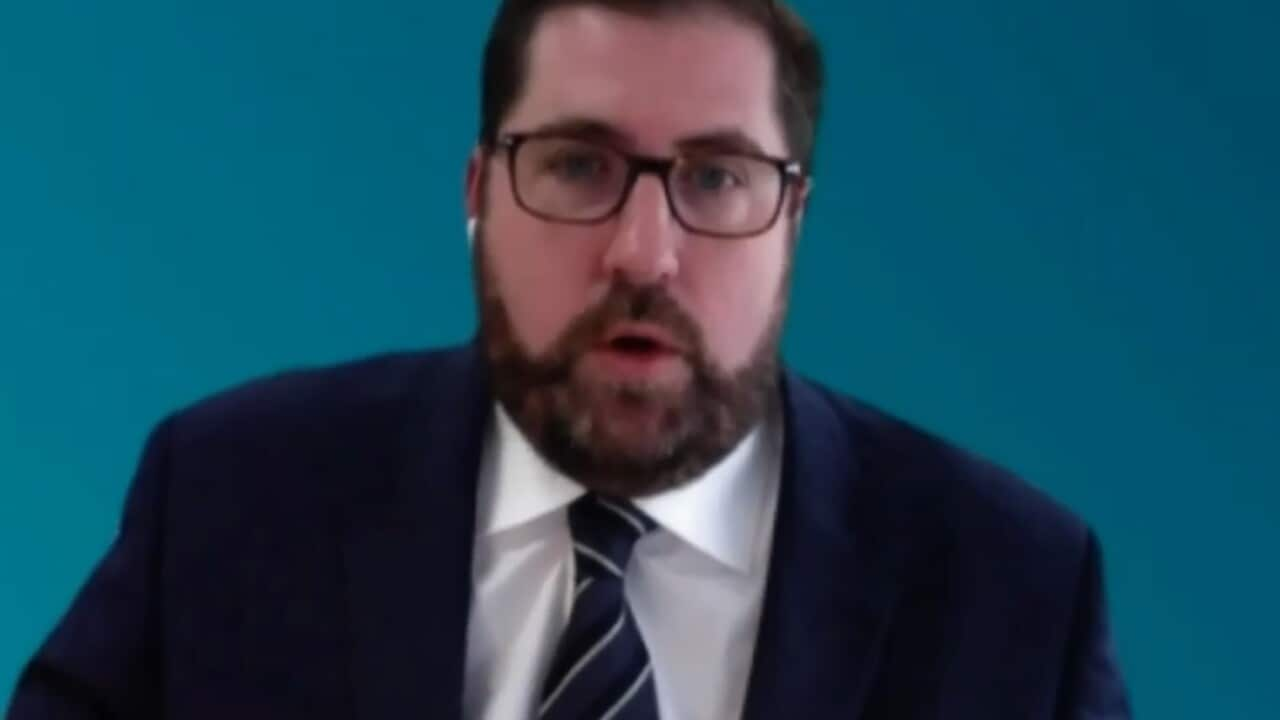Key Points
- Neo-nazism and other far-right extremist ideologies are a growing threat in Victoria, a new report has found.
- It says this is putting marginalised groups at risk of violence.
Neo-nazism and other far-right extremist ideologies are a growing threat in Victoria, putting marginalised groups at risk of violence, a new report has found.
The inquiry was announced in February following in January 2021 and as MPs debated pandemic legislation in November.
It also probed the risk the movement poses to Victoria's multicultural communities, as well as their methods of recruitment and communication.
What is far-right extremism?
The Greens-led Victorian Parliament's Legal and Social Issues Committee tabled its final report on Tuesday.
Multicultural groups, women and LGBTQI+ members were identified as common targets of far-right extremists.
It also identified a risk of violent extremism towards politicians and public figures.
The term "far-right extremism" refers to people or organisations who promote exclusionary nationalism, oppose democratic principles and processes, and favour authoritarianism, and includes groups who consider violence as a legitimate way to achieve ideological goals.
It has always existed but re-emerged from about 2015, and then was exacerbated during the COVID-19 pandemic, Greens leader Samantha Ratnam said.
"We saw this type of rhetoric being promulgated, particularly during a pandemic as more people were using digital spaces to connect," she told reporters.
"We saw these movements exploit people's legitimate fears and anxieties, spreading misinformation, anti-vaccine conspiracy theories.
"We believe they were being used to exploit and recruit into these movements."

Victorian independent MP Fiona Patten chaired the inquiry and has urged the federal government to show leadership on the issue of far-right extremism. Source: AAP / Joel Carrett
The role of the pandemic in extremist growth
The report urges the Victorian government to be vigilant against the threat of far-right radicalisation in the context of the pandemic.
The committee found that only a small number of far-right extremist groups and individuals went to protests in Victoria against COVID-19 vaccine mandates and restrictions in 2021.
It found extremist ideology wasn't the primary motivating factor for the majority of those attending. Instead, it pointed to personal grievances over the impact of the restrictions.
Declining mental health, social isolation and economic insecurity brought on by the COVID-19 pandemic were found to be risk factors that could increase an individual's susceptibility to extremist narratives.
Other factors such as misinformation, conspiracy theories peddled on social media and the normalisation of anti-immigration rhetoric in mainstream media have put vulnerable people at risk of radicalisation and made them more susceptible to racist narratives.
The report states when elected figures accept racism “this blurs the lines between what is acceptable and what is not in the community.”
What does the report call for?
Among its recommendations, the inquiry called on the state government to develop better social cohesion and community-building strategies.
It also called for public funding for research into the links between far-right extremism, family violence and anti-women sentiment to establish counter-extremism measures.
The report is also pushing for a review of the Firearms Act 1996 to potentially expand the fit and proper person test so it includes members of violent groups.

Victorian Leader of the Greens Samantha Ratnam said far-right extremism has always existed but re-emerged from about 2015, and then was exacerbated during the COVID-19 pandemic. Source: AAP
The report reiterates extremism is a complex problem with no easy answers.
The state has six months to deliver its formal response to the inquiry.
'The federal government needs to step up'
The inquiry's chair, Reason Party leader Fiona Patten, urged the federal government to show leadership.
"We do need to see the federal government step up," she said.
"As politicians, sometimes this is personal because we do experience those threats, we experience those far extremist views that feel that they have permission to attack members of parliament, not just online but even physically," Ms Patten said.
Ms Ratnam said extremist groups are exposing more people to far-right ideology.
"For too long we have just focused narrowly on a law and order approach which has addressed the issue after the fact, after the threat, after the incident, after it's too late," she said.
She said all levels of government need to take action urgently and treat it seriously.
"I think these issues have been presented as too hard and too complex to fix," Ms Ratnam said.
With additional reporting by Stephanie Corsetti.
SBS News has taken deep dive into extremism. To find out more, listen to in your podcast feed.


